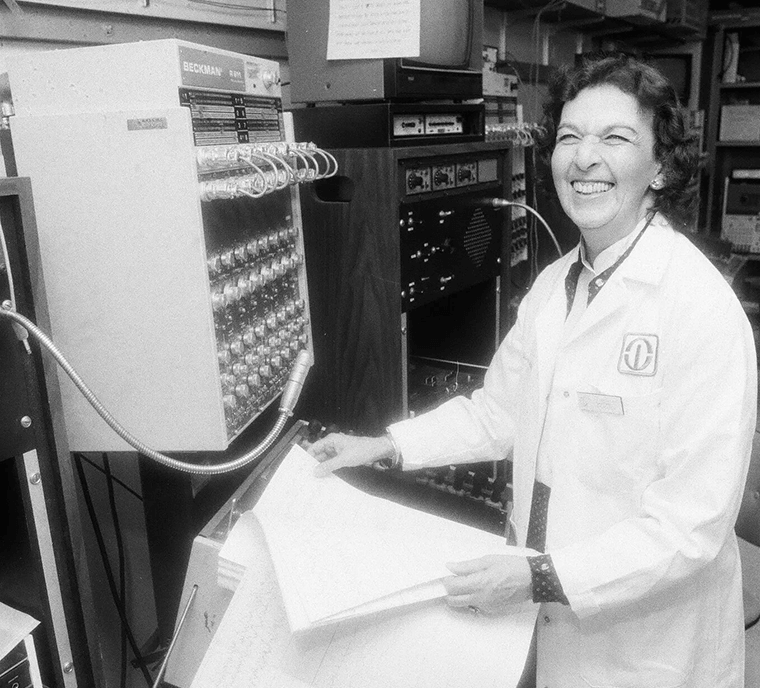
Rosalind Cartwright: Unveiling Dreams' Role in Emotional Healing
What if your nighttime journeys could help mend your heart by day? Rosalind Cartwright, a renowned psychologist, delved deep into this question, uncovering the therapeutic functions of dreaming. Her extensive research has revolutionized our understanding of how dreams can facilitate emotional healing and resilience.
From Curiosity to Groundbreaking Science
Rosalind Cartwright’s career began with a deep fascination for the mind's workings during sleep. At Rush University Medical Center, she pioneered groundbreaking studies that linked dream content with emotional processing. Her work revealed that our dreams are not mere stories played during sleep but pivotal experiences that help us reconcile and cope with our daily emotions. This insight was revolutionary, suggesting that dreams could have real, measurable impacts on our waking lives.
Cartwright's research extended into various aspects of sleep psychology, including her notable studies on how dreaming contributes to emotional recovery, particularly in people experiencing significant life changes like divorce. She observed that the manner in which individuals dreamt about their experiences influenced their emotional resilience. Those who were able to confront and work through their emotions in their dreams showed signs of more rapid and robust recovery compared to those who did not.
Moreover, her findings had profound implications for therapeutic practices. By understanding the narratives and themes that emerge in dreams, therapists could better guide their patients through recovery processes, using dreams as a window into the subconscious mind. This approach has helped countless individuals make sense of their emotional disturbances, providing a unique tool for psychological healing and well-being.
Dreams are not simply a replay of the day's activities but a continuation of our waking concerns.Rosalind Cartwright
Dr. Cartwright’s dedication to exploring the role of dreams in emotional health led her to become an authoritative figure in the field, earning her the nickname "Queen of Dreams." Her innovative methods and conclusions have paved the way for therapists and researchers alike to explore new dimensions of psychological care, highlighting the essential role of sleep and dreams in maintaining mental health.
The Science of Sleep and Emotional Recovery Through Dream Analysis
Rosalind Cartwright's pioneering experiments shed light on the profound impact of dreams on our waking emotional state. She discovered that patients going through significant life transitions, such as divorce, often experienced dreams in which they actively confronted and coped with their emotions. Those who engaged with their emotions in their dreams demonstrated a more robust and speedy recovery. This critical finding underscored the role of dreams as not just byproducts of the brain's nighttime activities but as essential tools for psychological resilience and mental health recovery.
Further delving into the therapeutic potential of dreams, Cartwright developed methods that allowed therapists to use dream narratives as gateways into patients' subconscious minds. By analyzing these narratives, therapists could help patients uncover hidden emotional disturbances and unresolved issues, facilitating significant breakthroughs in therapy. Her approach provided a new lens through which to view the psyche, revealing the underlying causes of emotional distress and opening new pathways for healing.

Rosalind Cartwright's Legacy: Transforming Dream Analysis and Emotional Healing
Cartwright’s contributions to psychology have left a lasting impact far beyond her original research. Her innovative techniques and insights into the psychological significance of dreams have inspired a generation of researchers and clinicians to further explore this complex field. Today, her methodologies are integral in clinical psychology, helping therapists around the world to gain deeper insights into their patients' inner worlds and enhancing their ability to foster emotional healing.
Cartwright's legacy in dream research and therapy illustrates the transformative power of understanding our dreams. Her work encourages us to view dreams not merely as reflections of our waking life but as active participants in our psychological well-being. Each dream offers a unique opportunity to engage with our subconscious, providing clues that can lead to greater self-awareness and emotional resolution.
Conclusion: Embracing the Healing Power of Dreams
Rosalind Cartwright's profound contributions remind us that our dreams are powerful tools for understanding and healing ourselves. They allow us to explore deep emotional issues and navigate our mental landscapes with greater clarity. By embracing the insights provided by our dreams, we can unlock new ways to overcome emotional challenges and enhance our overall well-being. As we continue to explore the depths of our dreams, we honor Cartwright's legacy and the invaluable insights it has brought to the field of mental health.





